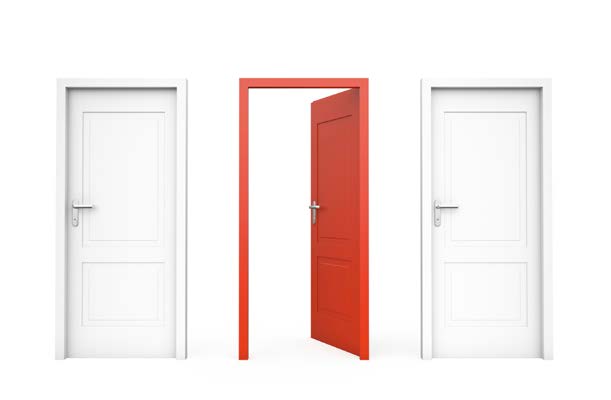 Open houses are a pain in the butt, but we do them because they work, says Dan Griffith, CRS, with Realty World All Stars in Rancho Cucamonga, Calif. He and his wife, Cheree Griffith, CRS, ABR, employ a labor-intensive process that includes placing up to 30 signs within a two-mile radius of the house, distributing flyers in the neighborhood, holding a neighbors preview open house an hour prior to the official open house and personally baking cookies throughout the event. They attribute about17 percent of their income to this traditional home-selling strategy.
Open houses are a pain in the butt, but we do them because they work, says Dan Griffith, CRS, with Realty World All Stars in Rancho Cucamonga, Calif. He and his wife, Cheree Griffith, CRS, ABR, employ a labor-intensive process that includes placing up to 30 signs within a two-mile radius of the house, distributing flyers in the neighborhood, holding a neighbors preview open house an hour prior to the official open house and personally baking cookies throughout the event. They attribute about17 percent of their income to this traditional home-selling strategy.
Open-Door Policy
Its a black-and-white issue to many REALTORS®, but opinions about the value of open houses are divided.
By Mary Ellen Collins

Open houses are a pain in the butt, but we do them because they work, says Dan Griffith, CRS, with Realty World All Stars in Rancho Cucamonga, Calif. He and his wife, Cheree Griffith, CRS, ABR, employ a labor-intensive process that includes placing up to 30 signs within a two-mile radius of the house, distributing flyers in the neighborhood, holding a neighbors preview open house an hour prior to the official open house and personally baking cookies throughout the event. They attribute about17 percent of their income to this traditional home-selling strategy.
In contrast, Guy Gimenez, CRS, GRI, broker/owner of the Powerhouse Real Estate Group in Austin, Texas, stopped doing open houses more than a decade ago. When I started my real estate career, I held open houses because I was told by seasoned agents that this was the way to succeed, says Gimenez. Once I understood the value of both money and time, I recognized I needed to get a return on the investment of each. The data clearly shows that in the geographic region in which I work, open houses have a greater than 95 percent probability of not succeeding.
Most sellers expect their agent to do an open house, but in 2012, 65 percent of REALTORS® reported that open houses generated no business, according to the NAR 2013 Member Profile. The advent of real estate websites that enable clients to explore housing options on their own has ratcheted up the conversation about whether open houses are dead or viable. Opinions remain split, with CRSs able to make a case for why they do or dont take this traditional path to matching buyers with the homes of their dreams.
Personal Connection
Open-house proponents believe that the benefits of face-to-face interaction are worth the time and effort, says Melissa Lundgren, CRS, ABR, with Village Real Estate Services in Nashville, Tenn. She reports that about 22 percent of her business is generated by selling homes featured at open houses and picking up clients or referrals from her open house efforts.
I look at an open house as a friend with benefits, says Lundgren. You can actually sell the home. You can meet unrepresented buyers who might become new clients. And its an audition to get another listing in the neighborhood since lots of neighbors come.
She enjoys the marketing preparation, from distributing signs and balloons to setting the stage with lighting, baked goods, music and water bottles labeled with a photo of the house. She also previews nearby homes for sale so she can speak knowledgeably about what makes her house special and why its priced correctly.
I think its fun, but its not for every agent because it takes extra work, says Lundgren. You cant just stick a sign in the ground, go in with a stack of business cards and listing sheets, cross your fingers and expect great, lasting results.
Cheree Griffith echoes that sentiment. Open houses are more tiring than anything else we do. When people see Dan putting up signs at 6:30 a.m. and picking them up at 5:30 p.m., they say, You guys are hard workers! Eleven percent of our business that comes from open houses comes from neighbor referrals thats why we give special attention to the neighbors. When people meet you, its worth more than the six or seven times you send them a marketing flyer.
Updating Tradition
For Jerry Cibulski, CRS, ABR, with Century 21 Albertson Realty in Southold, N.Y., open houses generate about 20 percent of his business, most of which comes from buyers who are looking for a second home. He recently revamped his strategy by setting up a computer connected to a monitor in the house prior to the event. Century 21 videos run in the background as guests walk through, but the technology is particularly helpful when buyers mention that the house doesnt work for them.
They might say I like this house, but Im looking for a different layout, says Cibulski. Then Im able to say, Let me show you the other listings we have. Instead of asking people to crowd around a computer, they can stand back and see the details of other listings on the flat screen.
It used to be that you went to the house, and the agent gave you a listing sheet and tried to get your name and address on a sign-in sheet. We tried to maximize the value of the experience for people. Instead of walking out with my business card, they can hear about other properties that are available and leave with a plan to reconvene at another time to see some other houses.
Internet Impact
Contrary to the idea that open house attendance has suffered because more people are looking online, Cibulski has experienced just the opposite. I see more people coming after seeing a house on the Internet. If they cant come to the open house, theyll call and make an appointment. We have an increase in showings during the week of the open house.
Jody Zink, CRS, with RE/MAX Preferred Associates, is among those agents who give open houses a thumbs down. I try not to do them unless a client insists, she says. Early in my career I did an open house every Sunday for more than six months, and it did not result in a sale.
Instead, she focuses on Internet marketing and uses a stager and a professional photographer, which sets her apart from most agents in her area. The majority of her business comes from people whove looked online, and she closed 80 transaction sides in 2013.
|
Experience |
||
|---|---|---|
|
Sales from Open Houses |
2 years or less |
16 years or more |
|
None |
63% |
67% |
|
Less than 10% |
20 |
25 |
|
Up to 25% |
7 |
5 |
|
Up to 50% |
6 |
2 |
|
More than 50% |
3 |
1 |
The first showing is online, and photos sell homes. My job is to best position your house and make it look the best it can look, says Zink. Id rather spend money on photography, staging and marketing online; and Id rather show five houses to someone whos pre-approved and ready to write an offer than stand around at an open house. She also mentions the safety issue, referencing a person in her area who became known for attending open houses and stealing prescription drugs: Do sellers really want people coming into their home who havent been vetted by a REALTOR®?
Apart from the security concerns, some sellers are reluctant to do open houses because they view them as an unnecessary hassle that probably wont result in a sale. Others believe an open house is merely an opportunity for their listing agent to market themselves to other prospective clients. Although agents acknowledge that open houses can result in additional business, they agree that their seller is always their priority. Our intent is to sell that house, says Dan Griffith. Were there only to represent our client.
Offer Incentives
Extra perks sometimes draw people in, and Gimenez has found that advertising his real estate investment and redevelopment company is a helpful marketing tool.
My sellers often request that I also put up a yard sign for my investment company that tells prospective buyers I will buy their home if they purchase my listing, says Gimenez. Use of the secondary sign is simply a marketing strategy that is designed to generate phone calls from prospective purchasers who seek more information about my purchase program. He has sold and purchased homes using this strategy. And like Zink, Gimenez also relies on Internet marketing with top-quality photographs. Using Trulia and numerous other online sites yields more solid buyer leads for a specific property than an open house ever has, and with a much lower investment of time and money, says Gimenez.
Incentives can also be effective in drumming up attendance for agent/broker open houses. Some CRSs dont do those events unless they have a particularly interesting high-end home or recently completed new construction, but Cibulski does them regularly, using a strategy he started during the difficult market.
When gas prices were up and the market was down, people tended to stay in their offices and we lost that valuable networking opportunity, says Cibulski. We had to incentivize. We try to feature one town and show all the listings we have there; and we do a drawing for a gift basket or gift certificates. You have to keep it exciting for the agents, not just the buyers and sellers.
As with any real estate strategy, agents will continue to assess the approaches that work most effectively for them, their clients and their markets. And the open-house debate will continue with no consensus in sight.
Share your thoughts about the effectiveness of open houses on the CRS Member Blog.








Leave a Comment